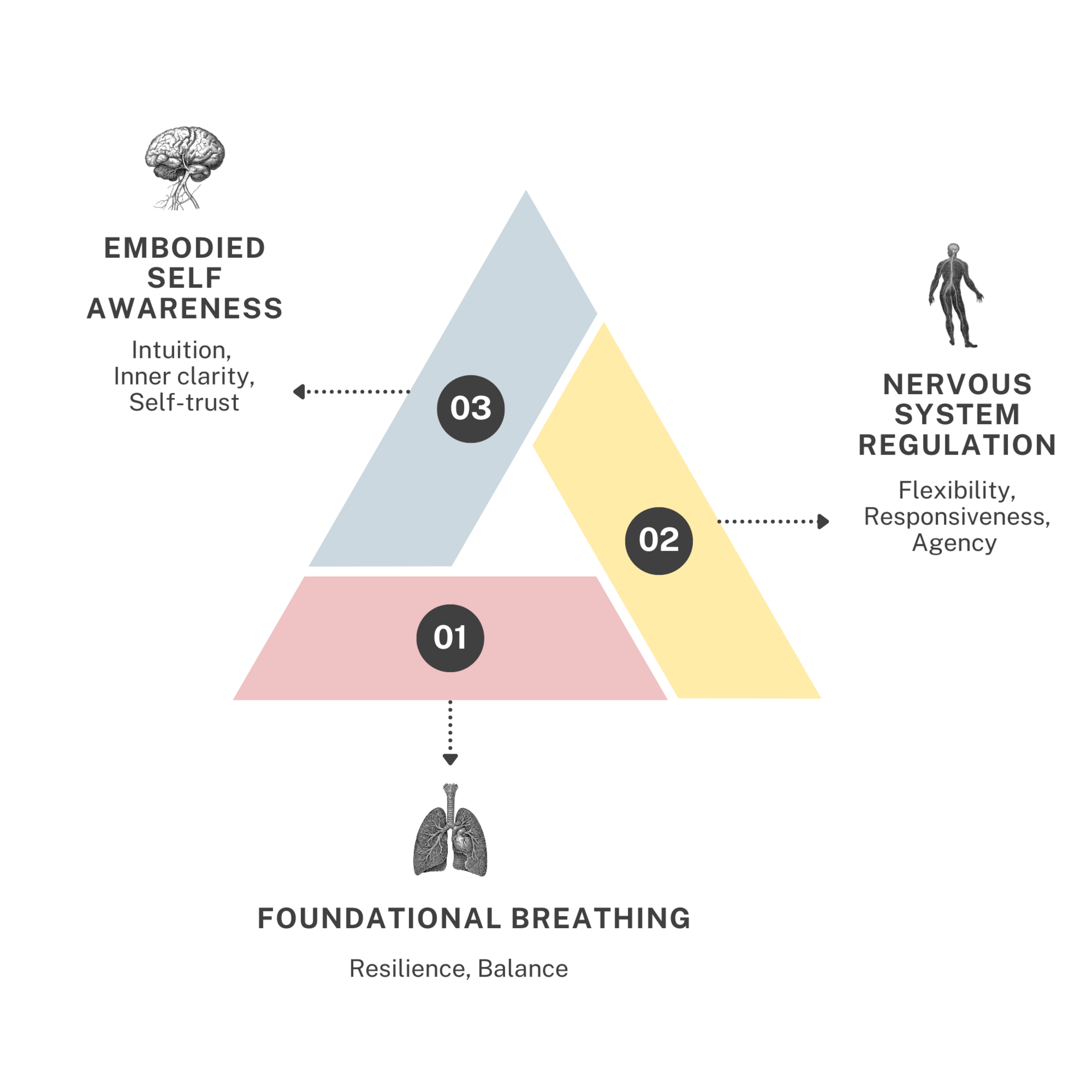- Stretch
- Posts
- Get out your brain's way
Get out your brain's way
Brain scans agree: stepping away is often THE MOST productive thing you can do
Hey, I’m Charlotte—Breath and Body-Oriented Coach and writer of Stretch, where 2,700+ curious minds get one idea each week to stretch their definition of performance—through breath, nervous system regulation, and embodied self-awareness.
If you’re someone who feels guilty about taking breaks throughout your work day… this brain scan finding might change everything:
Your brain is actively working for you while you “do nothing”, and the best thing you can do is to get out of its way.
Here’s what I learned from the book Rest by Alex Pang:
When you’re resting, your brain is almost as active as when you’re focused.
One particular study, back in the 1990s, showed that there’s as much going on in the brain while reading text (a cognitively complicated activity) as while staring at a blank wall.
It’s just a different kind of activity, driven by different brain regions.
As soon as we stop concentrating on an external task, our brain automatically switches on the Default Mode Network (DMN) - a series of interconnected sections that are involved in mind-wandering, daydreaming about the past and future, and introspection.
This kind of brain activity is hugely important and valuable. The DMN is busy processing, connecting, and consolidating ideas - completely outside of our conscious awareness.
“It is clear that the brain’s creative work is never done, that even in its resting state the brain is plugging away at problems, examining and tossing out possible answers, looking for novelty. This is a process we can’t really control. But by learning to rest better, we can support it.”
Isn’t that cool, and just so damn liberating? No need to feel guilty. No need to feel lazy. If anything, the lazy thing is to keep your bum in your seat and stare at a screen—ignoring what your brain is trying to do for you.
SO, there are two big things I take away from this insight:
1. Taking a break isn’t a waste of time, and it’s definitely not unproductive. If anything, it’s the most productive thing you can do.
This is the part that I hadn’t fully appreciated yet:
It’s not just that “rest is important.”
It’s that your brain is still working for you, even while you’re resting.
And the more you get out of its way, the better it can do its job.
When you step away from focused work—whether to breathe, walk, or do the dishes—you’re not wasting time. It’s not an interruption of your work.
You’re giving your brain the exact conditions it needs to generate new insights, new creative ideas, new clarity.
2. We need to be careful of how we take breaks.
For many of us, a break is often just switching from a big screen to a smaller screen. That’s not a break.
So now, after a block of focused work, I try to be hyper mindful of not immediately reaching for my phone. No scrolling, consuming, or flooding my brain with noise. Because that interrupts the very process I want to protect.
Instead, I let my mind wander. I breathe slowly. I walk the dog. I do some chores around the house. I give my brain space to keep working on the task I just left.
And yes, it can feel deeply uncomfortable to step away and “do nothing”, especially when I’m stuck on something. My instinct is to push harder, stare longer at the screen.
But that’s exactly the point:
My conscious brain power is limited. The most powerful work is happening behind the scenes - if I allow it.
And just to be clear…
This isn’t about turning rest into another productivity hack so that every single moment is secretly about work. Quite the opposite.
It’s about recognizing that “staring at a screen and tapping the keyboard” isn’t the only way progress happens.
I’s often in the moments away from the desk—preparing a healthy lunch, picking up your kids from school, closing your eyes for 10 minutes of slow breathing—that breakthroughs emerge.
So instead of guilt, you can feel trust (even excitement!) knowing that your brain is still hard at work for you.
When clients tell me they “don’t have time” for breathwork or movement, these are exactly the kinds of insights I share. It’s not about slowing down or taking time away from work. It’s about creating the conditions for deeper focus, better ideas, and more energy to actually enjoy the work you’re doing.
And so when you finally understand that rest isn’t the opposite of work, but the hidden half of it… suddenly those 5–10 minutes of breathing or walking aren’t an indulgence. They’re your edge.
If this speaks to you, and you’d love the science, the structure and the accountability to build these practices into your life, reply to this email. We’ll hop on a call to discuss what you’re looking for and how I can help.

The Nervous System Potential Coaching Framework
Reply